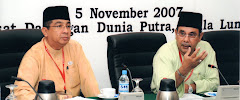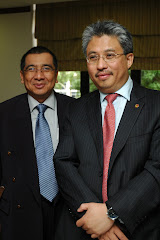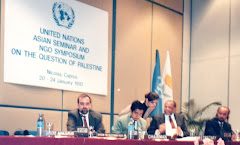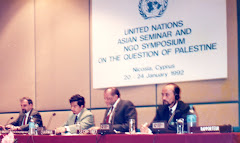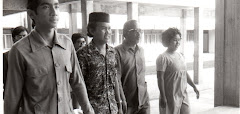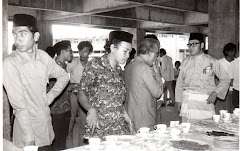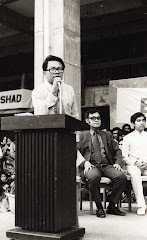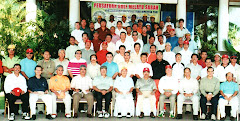1. You’ll get there faster
Commute by bike in the UK’s major cities and you’ll get there in half
the time of cars, research by Citroen shows. In fact, if you drive for an hour
in Cardiff’s rush hour, you’ll spend over 30 minutes going absolutely nowhere
and average just 7mph, compared to averaging around 12-15mph while cycling.
2. Sleep more deeply
An early morning ride might knacker you out in the short term, but it’ll
help you catch some quality shut-eye when you get back to your pillow. Stanford
University School of Medicine researchers asked sedentary insomnia sufferers to
cycle for 20-30 minutes every other day. The result? The time required for the
insomniacs to fall asleep was reduced by half, and sleep time increased by
almost an hour.
“Exercising outside exposes you to daylight,” explains Professor Jim
Horne from Loughborough University’s Sleep Research Centre. “This helps get
your circadian rhythm back in sync, and also rids your body of cortisol, the
stress hormone that can prevent deep, regenerative sleep.”
3. Look younger
Scientists at Stanford University have found that cycling regularly can
protect your skin against the harmful effects of UV radiation and reduce the
signs of ageing. Harley Street dermatologist Dr Christopher Rowland Payne
explains: “Increased circulation through exercise delivers oxygen and nutrients
to skin cells more effectively, while flushing harmful toxins out. Exercise also
creates an ideal environment within the body to optimise collagen production,
helping reduce the appearance of wrinkles and speed up the healing process.”
Don’t forget to slap on the factor 30 before you head out, though.
4. Boost your bowels
According to experts from Bristol University, the benefits of cycling
extend deep into your core. “Physical activity helps decrease the time it takes
food to move through the large intestine, limiting the amount of water absorbed
back into your body and leaving you with softer stools, which are easier to
pass,” explains Harley Street gastroenterologist Dr Ana Raimundo.
In addition, aerobic exercise accelerates your breathing and heart rate,
which helps to stimulate the contraction of intestinal muscles. “As well as
preventing you from feeling bloated, this helps protect you against bowel
cancer,” Dr Raimundo says.
5. Increase your brain power
Need your grey matter to sparkle? Then get pedalling. Researchers from
Illinois University found that a five percent improvement in cardio-respiratory
fitness from cycling led to an improvement of up to 15 percent in mental tests.
That’s because cycling helps build new brain cells in the hippocampus – the
region responsible for memory, which deteriorates from the age of 30.
“It boosts blood flow and oxygen to the brain, which fires and regenerates
receptors, explaining how exercise helps ward off Alzheimer’s,” says the
study’s author, Professor Arthur Kramer.
6. Beat illness
Forget apples, riding’s the way to keep the doctor at bay. “Moderate
exercise makes immune cells more active, so they’re ready to fight off
infection,” says Cath Collins, chief dietician at St George’s Hospital in
London.
In fact, according to research from the University of North Carolina,
people who cycle for 30 minutes, five days a week take about half as many sick
days as couch potatoes.
7. Live longer
King’s College London compared over 2,400 identical twins and found
those who did the equivalent of just three 45-minute rides a week were nine
years ‘biologically younger’ even after discounting other influences, such as
body mass index (BMI) and smoking.
“Those who exercise regularly are at significantly lower risk of
cardiovascular disease, type two diabetes, all types of cancer, high blood
pressure and obesity,” says Dr Lynn Cherkas, who conducted the research. “The
body becomes much more efficient at defending itself and regenerating new
cells.”
8. Save the planet
Twenty bicycles can be parked in the same space as one car. It takes
around five percent of the materials and energy used to make a car to build a
bike, and a bike produces zero pollution.
Bikes are efficient, too – you travel around three times as fast as
walking for the same amount of energy and, taking into account the ‘fuel’ you
put in your ‘engine’, you do the equivalent of 2,924 miles to the gallon. You
have your weight ratio to thank: you’re about six times heavier than your bike,
but a car is 20 times heavier than you.
9. Improve your sex life
Being more physically active improves your vascular health, which has
the knock-on effect of boosting your sex drive, according to health experts in
the US. One study from Cornell University also concluded that male athletes
have the sexual prowess of men two to five years younger, with physically fit
females delaying the menopause by a similar amount of time.
Meanwhile, research carried out at Harvard University found that men
aged over 50 who cycle for at least three hours a week have a 30 percent lower
risk of impotence than those who do little exercise.
10. It’s good breeding
A ‘bun in the oven’ could benefit from your riding as much as you.
According to research from Michigan University in the US, mums-to-be who
regularly exercise during pregnancy have an easier, less complicated labour,
recover faster and enjoy better overall mood throughout the nine months. Your
pride and joy also has a 50 percent lower chance of becoming obese and enjoys
better in-utero neurodevelopment.
“There’s no doubt that moderate exercise such as cycling during
pregnancy helps condition the mother and protect the foetus,” says Patrick
O’Brien, a spokesman for the Royal College of Obstetricians and Gynaecologists.
11. Heal your heart
Studies from Purdue University in the US have shown that regular cycling
can cut your risk of heart disease by 50 percent. And according to the British
Heart Foundation, around 10,000 fatal heart attacks could be avoided each year
if people kept themselves fitter. Cycling just 20 miles a week reduces your risk
of heart disease to less than half that of those who take no exercise, it says.
12. Your boss will love you
No, we don’t mean your Lycra-clad buttocks will entice your superiors
into a passionate office romance, but they’ll appreciate what cycling does for
your usefulness to the company. A study of 200 people carried out by the
University of Bristol found that employees who exercised before work or at
lunchtime improved their time and workload management, and it boosted their
motivation and their ability to deal with stress.
The study also reported that workers who exercised felt their
interpersonal performance was better, they took fewer breaks and found it
easier to finish work on time. Sadly, the study didn’t find a direct link between
cycling and getting a promotion.
13. Cycle away from the big C
There’s plenty of evidence that any exercise is useful in warding off
cancer, but some studies have shown that cycling is specifically good for
keeping your cells in working order. One long-term study carried out by Finnish
researchers found that men who exercised at a moderate level for at least 30
minutes a day were half as likely to develop cancer as those who didn’t. And
one of the moderate forms of exercise they cited? Cycling to work. Other
studies have found that women who cycle frequently reduce their risk of breast
cancer by 34 percent.
14. Lose weight in the saddle
Loads of people who want to shift some heft think that heading out for a
jog is the best way to start slimming down. But while running does burn a ton
of fat, it’s not kind to you if you’re a little larger than you’d like to be.
Think about it – two to three times your body weight goes crashing through your
body when your foot strikes the ground. If you weigh 16 stone, that’s a lot of
force! Instead, start out on a bike – most of your weight is taken by the
saddle, so your skeleton doesn’t take a battering. Running can wait…
15. You’ll make more money
If you’re cycling to lose weight then you could be in line for a cash
windfall… Well, sort of. Researcher Jay Zagorsky, from Ohio State University,
analysed data from the National Longitudinal Survey of Youth – which saw 7,300
people regularly interviewed between 1985 and 2000 – to see how their obesity
and wealth changed over that period. Zagorsky concluded that a one unit
increase in body mass index (BMI) score corresponded to an £800 or eight
percent reduction in wealth. So, shed a few BMI points on the bike and start
earning.
16. Avoid pollution
You’d think a city cyclist would suck up much more pollution than the
drivers and passengers in the vehicles chucking out the noxious gases. Not so,
according to a study carried out by Imperial College London. Researchers found
that passengers in buses, taxis and cars inhaled substantially more pollution
than cyclists and pedestrians.
On average, taxi passengers were exposed to more than 100,000 ultrafine
particles – which can settle in the lungs and damage cells – per cubic
centimetre. Bus passengers sucked up just under 100,000 and people in cars
inhaled about 40,000. Cyclists, meanwhile, were exposed to just 8,000 ultrafine
particles per cubic centimetre. It’s thought that cyclists breathe in fewer
fumes because we ride at the edge of the road and, unlike drivers, aren’t
directly in the line of exhaust smoke.
17. Enjoy healthy family time
Cycling is an activity the whole family can do together. The smallest
tyke can clamber into a bike seat or tow-along buggy, and because it’s kind on
your joints, there’s nothing to stop grandparents joining in too.
Moreover, your riding habit could be sowing the seeds for the next
Bradley Wiggins. Studies have found that, unsurprisingly, kids are influenced by
their parents’ exercise choices. Put simply, if your kids see you riding
regularly, they think it’s normal and will want to follow your example. Don’t
be surprised, though, if they become embarrassed by your tendency to mismatch
fluorescent Lycra when they become teenagers.
18. It means guilt-free snacks
Upping your salt intake is seldom your doctor’s advice, but in the few
days leading up to a big ride or sportive, that’s exactly what you should do.
This gives you the perfect excuse to munch on crisps and other salty foods you
might normally avoid. The sodium in them helps protect your body against
hyponatraemia, a condition caused by drinking too much water without enough
sodium that can lead to disorientation, illness and worse.
19. Get better at any sport
Whether you want to keep in prime shape or just improve your weekly
tennis game, a stint in the saddle is the way to begin. A recent medical study
from Norway carried the title Aerobic Endurance Training Improves Soccer
Performance, which makes it pretty clear that the knock-on benefits to other
sports and activities are immense.
20. Make creative breakthroughs
Writers, musicians, artists, top executives and all kinds of other
professionals use exercise to solve mental blocks and make decisions –
including Jeremy Paxman, Sir Alan Sugar and Spandau Ballet. A study found that
just 25 minutes of aerobic exercise boosts at least one measure of creative thinking.
Credit goes to the flow of oxygen to your grey matter when it matters most,
sparking your neurons and giving you breathing space away from the muddle and
pressures of ‘real life’.
21. You’re helping others
Many cyclists turn their health, fitness and determination into
fundraising efforts for the less fortunate. The London to Brighton bike ride
has raised over £40 million for the British Heart Foundation since the two
became involved in 1980, with countless other rides contributing to the coffers
of worthy causes.
22. You can get fit without trying too hard
Regular, everyday cycling has huge benefits that can justify you binning
your wallet-crippling gym membership. According to the National Forum for
Coronary Heart Disease Foundation in the US, regular cyclists enjoy a fitness
level equal to that of a person who’s 10 years younger.
23. Boost your bellows
No prizes for guessing that the lungs work considerably harder than
usual when you ride. An adult cycling generally uses 10 times the oxygen they’d
need to sit in front of the TV for the same period. Even better, regular
cycling will help strengthen your cardiovascular system over time, enabling
your heart and lungs to work more efficiently and getting more oxygen where it’s
needed, quicker. This means you can do more exercise for less effort. How good
does that sound?
24. Burn more fat
Sports physiologists have found that the body’s metabolic rate – the
efficiency with which it burns calories and fat – is not only raised during a
ride, but for several hours afterwards. “Even after cycling for 30 minutes, you
could be burning a higher amount of total calories for a few hours after you
stop,” says sports physiologist Mark Simpson of Loughborough University.
And as you get fitter, the benefits are more profound. One recent study
showed that cyclists who incorporated fast intervals into their ride burned
three-and-a-half times more body fat than those who cycled constantly but at a
slower pace.
25. You’re developing a positive addiction
Replace a harmful dependency – such as cigarettes, alcohol or eating too
much chocolate – with a positive one, says William Glasser, author of Positive
Addiction. The result? You’re a happier, healthier person getting the kind of
fix that boosts the good things in life.
26. Get (a legal) high
Once a thing of myth, the infamous ‘runner’s high’ has been proven
beyond doubt by German scientists. Yet despite the name, this high is
applicable to all endurance athletes. University of Bonn neurologists
visualised endorphins in the brains of 10 volunteers before and after a
two-hour cardio session using a technique called positive emission tomography
(PET). Comparing the pre- and post-run scans, they found evidence of more
opiate binding of the happy hormone in the frontal and limbic regions of the
brain – areas known to be involved in emotional processing and dealing with
stress.
“There’s a direct link between feelings of wellbeing and exercise, and
for the first time this study proves the physiological mechanism behind that,”
explains study co-ordinator Professor Henning Boecker.
27. Make friends and stay healthy
The social side of riding could be doing you as much good as the actual
exercise. University of California researchers found socialising releases the
hormone oxytocin, which buffers the ‘fight or flight’ response.
Another nine-year study from Harvard Medical School found those with the
most friends cut the risk of an early death by more than 60 percent, reducing
blood pressure and strengthening their immune system. The results were so
significant that the researchers concluded not having close friends or confidants
is as detrimental to your health as smoking or carrying extra weight. Add in
the fitness element of cycling too and you’re onto a winner.
28. Be happy
Even if you’re miserable when you saddle up, cranking through the miles
will lift your spirits. “Any mild-to-moderate exercise releases natural
feel-good endorphins that help counter stress and make you happy,” explains
Andrew McCulloch, chief executive of the Mental Health Foundation. That’s
probably why four times more GPs prescribe exercise therapy as their most
common treatment for depression compared to three years ago. “Just three
30-minute sessions a week can be enough to give people the lift they need,”
says McCulloch.
29. Feeling tired? Go for a ride
Sounds counter-intuitive but if you feel too tired for a ride, the best
thing you can do is go for ride. Physical activity for even a few minutes is a
surprisingly effective wake-up call. A review of 12 studies on the link between
exercise and fatigue carried out between 1945 and 2005 found that exercise
directly lowers fatigue levels.
30. Spend quality time with your partner
It doesn’t matter if your paces aren’t perfectly matched – just slow
down and enjoy each other’s company. Many couples make one or two riding
‘dates’ every week. And it makes sense: exercise helps release feel-good
hormones, so after a ride you’ll have a warm feeling towards each other even if
he leaves the toilet seat up and her hair is blocking the plughole again.































